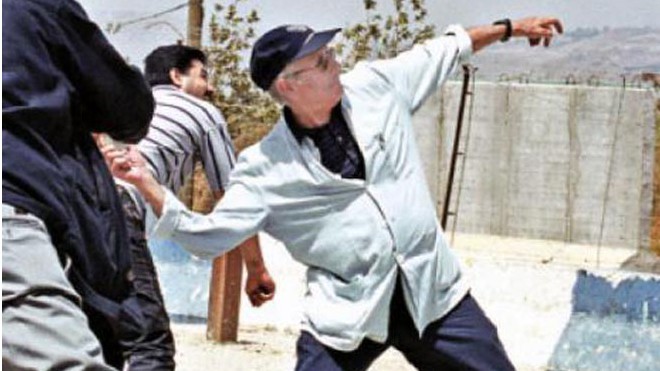
Writers, teachers, and universities will be the last places where freedom can be imagined, and perhaps preserved

In 2014, Ursula K. Le Guin, while receiving the Medal for Distinguished Contribution to American Letters, warned her audience that "hard times are coming" and that "we will be wanting the voices of writers who can see alternatives to how we live now." About the future of humanity, she said: "We will need writers who can remember freedom: poets, visionaries -- the realists of a larger reality."
Similarly, Edward Said used to celebrate the university, especially the Western university, as the last bastion of freedom. Columbia University, Edward Said’s place of employment, in 2007, had invited Mahmoud Ahmadinejad, the then President of Iran, to speak to the faculty and students despite the fact that the USA and Iran were not enjoying friendly relations. Ahmadinejad had come to New York to participate in the General Assembly of the United Nations Headquarters in New York, therefore, he could visit Columbia and talk to the audience.
By inviting Ahmadinejad, Columbia University had upheld the long tradition of healthy debate and listening to those whom the state declares persona non grata or enemies.
As Ursula Le Guin and Edward Said have indicated, writers, teachers, and universities will be the last places where freedom can be imagined, and perhaps preserved, after the oppressive side of technological rationality dominates the spaces created by those who have upheld the tradition of debate and doubt.
Freedom of expression, a value of post-enlightenment humanist thought, has been one of the most celebrated, misused and misunderstood tenets of Western thought. The problem with this tradition is that it has been selectively applied. During his speech at Columbia University, Ahmadinejad raised this issue: if the freedom of expression involves all types of speech, can someone deny the Holocaust in the West and not go to prison?
Read also: No-go areas of parliament
He raised another issue: why do the Palestinian people have to pay for an atrocity that was committed in Europe by a European leader? This selective use of the freedom of expression in the West is how an idea that might become a universal value becomes a problematic idea. For example, a movie that celebrates Algeria’s independence from France was not allowed to be released (remained banned) in France for five years because it portrays the events from an "Algerian point of view." Eventually, France allowed the film to be screened. Many decades later, even the Pentagon was showing it for discussing counter-terrorism strategies.
The university in the West, however, remains the site where the idea of the freedom of expression is taken seriously and the academic world has institutionalised certain practices to protect professors who espouse controversial ideas. A tenured professor in a Western university is almost impossible to remove even if he/she is involved in disseminating ideas that the general public dislikes.
A famous example of this is the Edward Said stone-throwing affair of 2000. During a visit with his family to Lebanon, Edward Said visited the border area from where Israeli soldiers had withdrawn and a wall had been built. Edward Said picked up a stone and joined the crowd throwing stones towards Israel and was photographed throwing a rock towards Israel.
The pro-Zionism lobby in the US started demanding Edward Said’s removal from Columbia and began calling him "professor of terror." Eventually, Columbia University had to issue a statement titled, "On the Matter of Edward Said" stating that "We do not believe in a speech code at Columbia, nor shall we act as a speech police." The Provost of Columbia University then went on to cite John Stuart Mill in defence of Edward Said’s action, "If all of mankind minus one were of one opinion, mankind would be no more justified in silencing that one person than he, if he had the power, would be justified in silencing mankind" (Mill, On Liberty).
We, in South Asia, have another kind of history of freedom of speech which must be acknowledged before we start relying on the West’s ideas of freedom of expression. We have Shah Hussain, Bulleh Shah, Kabir (whose verses are included in the holy scriptures of the Sikhs) and South Asian ethos, starting from ancient books to the kafis of the Sufis, before the arrival of British colonisers was highly amoral.
The Kamasutra and the temples illustrating all the possible positions of carnal forms of conviviality were an affront to the British who believed the people of South Asia were in dire need of Victorian/Christian values. British colonialism ended up reducing the freedom of expression in this region by creating laws that criminalised entire castes and tribes through the Criminal Tribes Act of 1871.
We have to find a more organic/native/closer-to-home alternative to the debate surrounding free expression. There is something to be learnt from the debacle and controversy surrounding the Eurocentric interpretation of the freedom of speech here. Ironically, it was the US which supported Ziaul Haq who curtailed innumerable freedoms in Pakistan because the Soviet Union was imagined to be in favour of certain ideas and the US needed a more capitalism-friendly interpretation of Islam.
In the end, we will have a civilisation where Shah Hussain’s shrine is threatened by terrorists and John Stuart Mill is not available to us because we did not develop a grounded, local, organic system through which to celebrate our self and its all-inclusive voices.